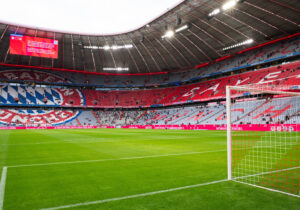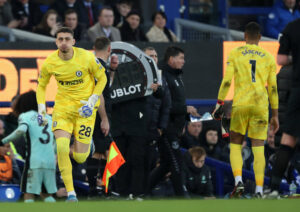“We spent money with (Nicolas) Pepe, but Pepe needs time to adapt to the Premier League. For example, in France I loved a lot Fabinho. He was in Monaco and I wanted to sign him for Paris Saint-Germain.
“When I arrived here, also his name was on the table to achieve to sign him, but he signed for Liverpool. The first six months he didn’t play, it was adaptation. But now he is amazing and I want the same with (Dani) Ceballos, with Pepe.”
That was the admission of Arsenal manager Unai Emery this week, and as he defended club-record signing Nicolas Pepe’s slow start to the season, it is telling that an opposition manager used Fabinho of Liverpool as an example of a player who failed to convince early on but soon developed into one of the most dependable players in the Premier League.
During Liverpool’s successful 2018/19 season, which included a sixth Champions League title and second place in one of the tightest league title races in recent memory, and at the start of this campaign, much was made about the thrilling attacking threat of Mohammed Salah, Sadio Mane and Roberto Firmino, the energetic full-back pairing of Trent Alexander-Arnold and Andy Robertson, and the impact of the imperious Virgil van Dijk.
All of the aforementioned players undoubtedly had huge roles in such a rise under Jurgen Klopp, yet Fabinho’s influence on Liverpool’s system has perhaps not been appreciated as it should be. In 33 games in which the Brazilian has started, Liverpool have 25 wins, five draws and no defeats. He is one of the cogs that has taken this side to another level.
Fabinho is Driving Liverpool’s Success
While Liverpool already had midfielders who could defend before the Brazilian’s arrival, such as James Milner, Jordan Henderson and Georginio Wijnaldum, none possessed the clever positioning and accurate reading of the game that a natural holding midfielder like Fabinho has shown.
“That’s not a surprise, that’s why we signed him,” Klopp said of the 26-year-old last month. “He plays like he played at Monaco, but he needed time to adapt to the different rhythm and tempo in the league. That’s it. But in the moment when that happened, when he got used to that, since then he can play like he plays because of his quality. [He is] a very smart footballer and, of course, really skilled in all defensive things. These individual defensive things are really difficult to learn.
“It’s like if you have a sensational right foot or a sensational left foot for a specific shot, or if you have these skills in one-on-one situations – it’s a skill and he used that pretty well. But this alone would not make him the player he is, it’s about all his game intelligence. It’s really good and that helps all of us.”
The impact of Fabinho is also shown in the numbers. Last season, he made 53 tackles and won 58% of his aerial duels, imposing himself with his height and physicality. In addition, he made 26 clearances and 28 interceptions, along with six blocks. Such numbers were inferior to other defensive midfielders in the league due to his slow start and the fact that he only made his debut in October, featuring just 21 times in total.
Nevertheless, he grew in confidence and started to become a key part of Liverpool’s domestic and European charge. This season, he has continued his form, making 25 tackles, more than any Liverpool midfielder, from his eight appearances so far. What’s more, he covers ground better than most players in his position, which is crucial to Jurgen Klopp’s intense, high-pressing style of play.
The protection that Fabinho offers is benefitting Liverpool in wide areas. The Reds’ play is heavily influenced not only by their dangerous front three, but by their attacking full-backs, Robertson and Alexander-Arnold. As the pair bomb forward and stretch defences, Fabinho is tasked with sitting back and covering any spaces left by the full-backs, which reduces the exposure to the centre-backs, should an opposition counter-attack occur.
Ability on the Ball
Fabinho is not just a combative ball-winner, either. He has proven himself as a calm presence on the ball and with his distribution – only three midfielders have made more than his 613 passes, 13 of which have been key passes, in the league this season. He has also played 47 long balls, second only to Sheffield United’s Oliver Norwood, who has 78. What the Brazilian brings is a sense of calmness and security, both with and without the ball.
It was no surprise, therefore, that in Liverpool’s crucial 2-1 win against Tottenham Hotspur at the weekend, Fabinho was once again the outstanding player on the pitch. He made 111 touches, 78 accurate passes, completed five long balls, won three interceptions, three tackles, and created two chances. His clever, dinked ball played an important role in Jordan Henderson equalising for the home side.
Alisson, van Dijk, Roberton, Alexander-Arnold, Salah, Mane and Firmino may grab the headlines, but the consistent displays of Fabinho at the heart of Jurgen Klopp’s midfield is proving to be one of the key aspects behind Liverpool’s success. He may have gone under the radar, but as Liverpool’s title chances grow stronger, the influence of the Brazilian is now being realised by many across Europe.
Main Photo:






